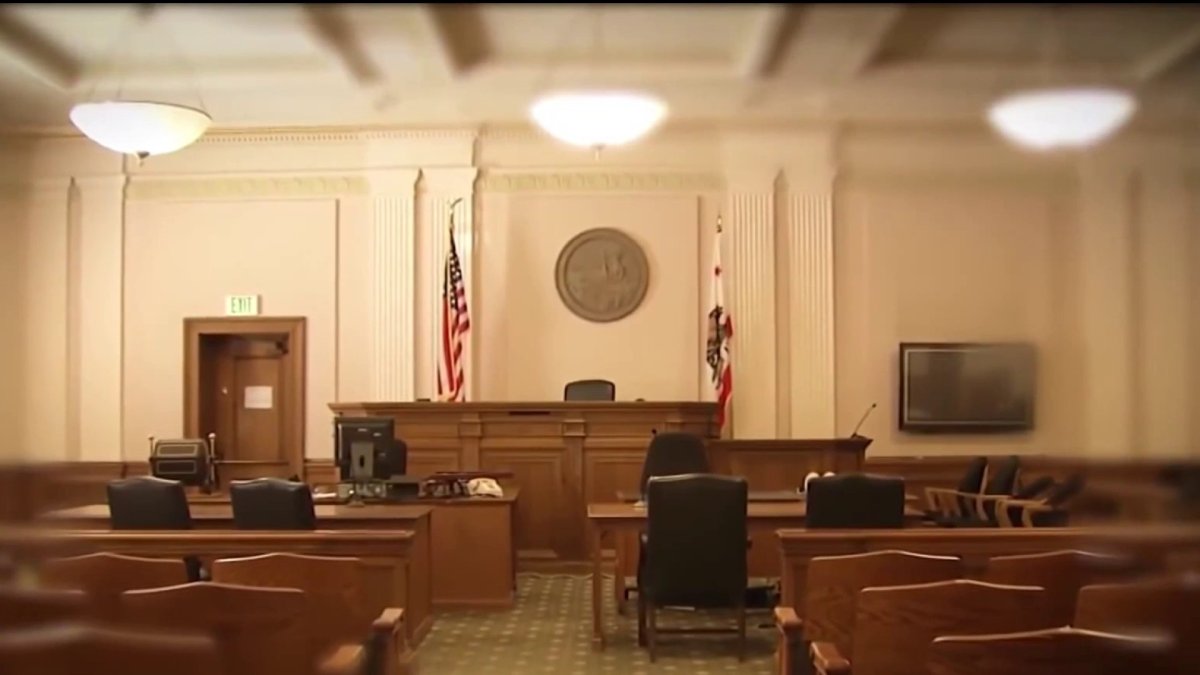Government attorneys are seeking more than $300,000 combined from two undocumented immigrants in the Bay Area for staying in the U.S.
The Department of Justice is suing two Bay Area immigrants in federal court, seeking to collect more than $300,000 combined in fines issued by ICE for failing to leave the country after immigration judges issued removal orders for both men.
The Trump administration is dusting off a rarely used law, originally passed in 1997, to hit thousands of undocumented immigrants with heavy financial penalties.
In a June press release announcing new regulations making it easier for ICE to issue civil penalties, the administration said it had already fined more than 10,000 immigrants, including penalties of $998 a day for “failing to comply with a removal order.”
Now, the lawsuits suggest ICE is coming to collect in federal court from immigrants who haven’t paid. Multiple immigration attorneys who spoke to NBC Bay Area said the lawsuits, both filed on Monday, are the first of their kind they’ve seen in the region.
“We are expecting to see a tsunami of people being penalized under these laws,” said Merle Kahn, an immigration attorney with the Immigrant Legal Resource Center (ILRC) in San Francisco.
The ILRC recently submitted written opposition to the new regulations, arguing the fines are excessive and unconstitutional. Kahn said President Trump is the only U.S. president who’s used the law to target undocumented immigrants with these civil penalties. In some, but not all cases, Kahn said the government would waive the fines if immigrants self-deport.
“I think the purpose is simply to sow terror in the immigrant community because it’s so arbitrary and so capricious,” Kahn said. “They’re going after people with outstanding deportation orders and trying to collect hundreds-of-thousands, if not millions of dollars, from them when they have no assets. They don’t have a house in Los Gatos or Saratoga, they’re cleaning the houses in Los Gatos and Saratoga.”
ICE did not respond to NBC Bay Area’s request for comment.
In both lawsuits, government attorneys allege both men, one living in San Francisco and the other in San Bruno, haven’t left the country after immigration judges issued removal orders for failing to attend scheduled hearings.
NBC Bay Area attempted to contact both men at their last known address, but residents said they no longer live there.
One, facing nearly $300,000 in penalties, was issued a removal order in July of last year. The other, who owes more than $40,000, was issued a removal order in March. According to the lawsuits, neither man has paid the fines after being sent notices through the mail in June.
“That’s a fortune,” said Bill Hing, a University of San Francisco professor of law and founding director of the Immigration and Deportation Defense Clinic. “That’s more than a fortune to most.”
Hing said he’s skeptical the government will be able to collect the fines in most cases but called them a fear tactic aimed at scaring immigrants into self-deportation.
“I actually know that this is happening in some circumstances,” Hing said. “Where people are giving up and they are making this hard choice of going back to a country where they also are afraid of living or living in the United States with this constant fear as well.”
With ICE agents now arresting people after routine immigration hearings, many immigrants who have spoken to NBC Bay Area over the past few months say they’re scared to show up for court. Immigration judges have routinely commented on the high number of no-shows since plainclothes agents have become a regular presence at immigration court.
Missing a single hearing, however, can lead to an automatic deportation order, and now, the added risk of heavy fines. Kahn said the second iteration of the Trump administration has gone to unprecedented lengths to carry out immigration enforcement.
“Someone spent the past four years going through the Immigration and Nationality Act and figuring out how to harm the immigrant community any way possible,” Kahn said. “They are using every tactic they can.”
Hing agreed.
“They came in with guns blazing,” Hing said. “Raids, enforcement.”
Kahn is now training other immigration attorneys to combat the new wave of civil penalties but said it will take a legal challenge in court to overturn the law entirely.
“Whenever you feel something is deeply, deeply unfair, then you start looking for a constitutional violation,” Kahn said.
